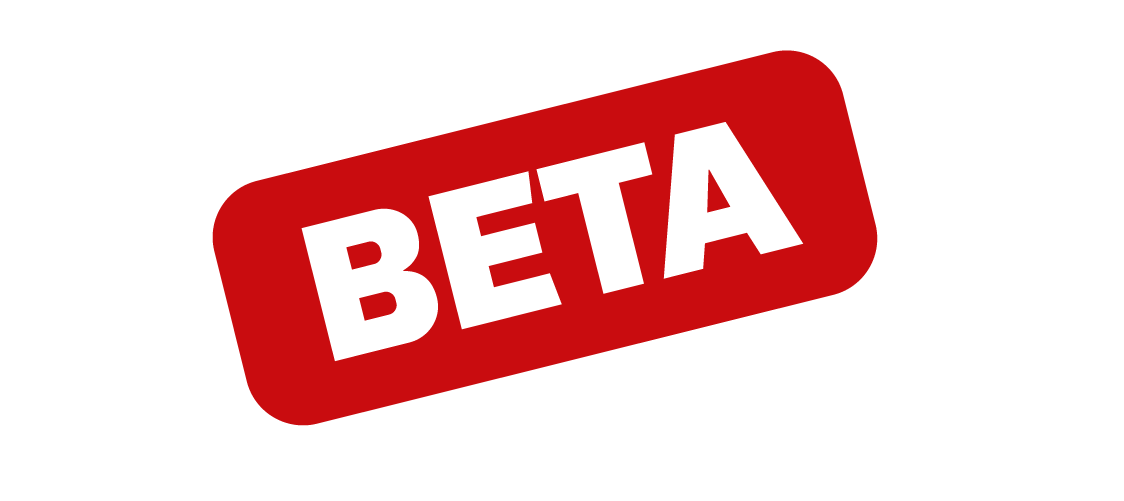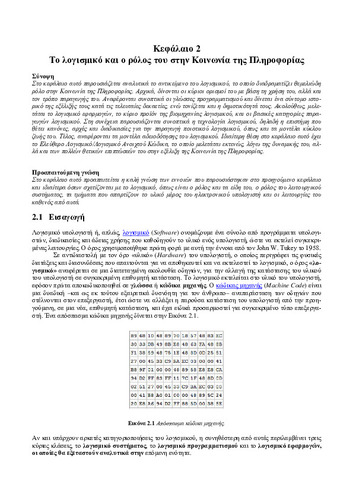| Title Details: | |
|
The software and its role in the Information Society |
|
| Authors: |
Paraskevas, Michail |
| Reviewer: |
Syrmakesis, Spyros |
| Subject: | MATHEMATICS AND COMPUTER SCIENCE > COMPUTER SCIENCE > SOFTWARE DEVELOPMENT FUNDAMENTALS MATHEMATICS AND COMPUTER SCIENCE > COMPUTER SCIENCE > COMPUTATIONAL SCIENCE > DATA, INFORMATION AND KNOWLEDGE MATHEMATICS AND COMPUTER SCIENCE > COMPUTER SCIENCE > INFORMATION MANAGEMENT > INFORMATION MANAGEMENT CONCEPTS MATHEMATICS AND COMPUTER SCIENCE > COMPUTER SCIENCE > OPERATING SYSTEMS > OVERVIEW OF OPERATING SYSTEMS MATHEMATICS AND COMPUTER SCIENCE > COMPUTER SCIENCE > OPERATING SYSTEMS > OPERATING SYSTEM PRINCIPLES MATHEMATICS AND COMPUTER SCIENCE > COMPUTER SCIENCE > SOFTWARE ENGINEERING > REQUIREMENTS ENGINEERING MATHEMATICS AND COMPUTER SCIENCE > COMPUTER SCIENCE > SOFTWARE ENGINEERING > SOFTWARE DESIGN MATHEMATICS AND COMPUTER SCIENCE > COMPUTER SCIENCE > SOFTWARE ENGINEERING > SOFTWARE CONSTRUCTION MATHEMATICS AND COMPUTER SCIENCE > COMPUTER SCIENCE > SOFTWARE ENGINEERING > SOFTWARE VERIFICATION AND VALIDATION MATHEMATICS AND COMPUTER SCIENCE > COMPUTER SCIENCE > SOFTWARE ENGINEERING > SOFTWARE EVOLUTION MATHEMATICS AND COMPUTER SCIENCE > COMPUTER SCIENCE > SOFTWARE ENGINEERING > SOFTWARE RELIABILITY ENGINEERING AND TECHNOLOGY > TECHNOLOGICAL SCIENCES AND ENGINEERING > TELECOMMUNICATIONS ENGINEERING AND TECHNOLOGY > WEB TECHNOLOGIES |
| Keywords: |
Open Source
Interoperability Operating Systems Software Engineering Software Cycle Life Models Software Licensing Models Licenses Of Open Source Software System Software Applications Software Programming Software Programming Languages Web Applications Software Market Open Standards |
| Description: | |
| Abstract: |
In this chapter we discuss issues related to the software, as a major guidance component for the Information Society. Particular emphasis is given to the presentation of open source. Specifically the chapter presents the following topics:
• Software Categories (system software, programming languages and application software) • Software Engineering (software life cycle, software life cycle models) • The software and its development models (proprietary software and Free Software / Open Source Software) • Features and licensing models of FS / OSS • Benefits (quality and reliability, hardware requirements, adaptability, open standards and interoperability, cost, security, transparency) and disadvantages of FS / OSS • Applications of FS / OSS in PCs and servers • Current situation use FS / OSS internationally and in Greece • Good practices of FS / OSS in education and public administration |
| Table of Contents: |
Chapter 2 The software and its role in the Information Society
2.1 Introduction 2.2 Software Categories 2.2.1 System Software 2.2.2 Programming Software 2.2.2.1 Popularity of programming languages 2.2.3 Applications Software 2.2.3.1 Application Software Categories 2.2.3.2 Web applications 2.2.4 Software Market Overview 2.3 Software Engineering 2.3.1 Software Lifecycle 2.3.2 Models Software lifecycle 2.3.2.1 The Waterfall Model 2.3.2.2 The Model of Development Original 2.3.2.3 Model of Operational Augmentation 2.3.2.4 The Spiral Model 2.3.2.5 The Model of the jet 2.3.2.6 The Agile Model 2.4 Software Licensing Models 2.4.1 Proprietary Software 2.4.2 Free Software 2.5 Free Software / Open Source Software 2.5.1 Characteristics of FS / OSS 2.5.2 Definition of Free Software 2.5.3 Definition of Open Source Software 2.5.4 Licensing / OSS 2.5.4.1 License GPL 2.5.4.2 License LGPL 2.5.4.3 BSD License 2.5.4.4 License MIT 2.5.4.5 Other licenses: MPL, IBM Public License, SUN Public License 2.5.5 A brief history of the evolution / OSS 2.5.6 Advantages of FS / OSS 2.5.6.1 Quality and reliability 2.5.6.2 Small hardware requirements 2.5.6.3 Open standards - Interoperability 2.5.6.4 Lower cost 2.5.6.5 Safety 2.5.6.6 Transparency 2.5.7 Disadvantages of FS / OSS 2.5.8 Current state use F / OSS 2.5.8.1 Internationally 2.5.8.2 In Greece 2.5.9 Applications / OSS 2.5.9.1 The F / OSS in PCs 2.5.9.2 The F / OSS on servers 2.6 References and Bibliography 2.6.1 References 2.6.2 Bibliography 2.7 Evaluation Criteria |
| Linguistic Editors: |
Xifara, Foteini |
| Technical Editors: |
Tsemperlidou, Melpomeni |
| Graphic Editors: |
Stasinou, Stavroula |
| Type: |
Chapter |
| Creation Date: | 15-12-2015 |
| Item Details: | |
| License: |
http://creativecommons.org/licenses/by-nc-sa/3.0/gr |
| Handle | http://hdl.handle.net/11419/400 |
| Bibliographic Reference: | Paraskevas, M. (2015). The software and its role in the Information Society [Chapter]. In Paraskevas, M., Asimakopoulos, G., & Triantafyllou, V. 2015. Information Society [Undergraduate textbook]. Kallipos, Open Academic Editions. https://hdl.handle.net/11419/400 |
| Language: |
Greek |
| Consists of: |
1. The software and its role in the Information Society: Full text questions 2. The software and its role in the Information Society: Multiple choice questions 3. Interactive element 2.1 |
| Is Part of: |
Information Society |
| Number of pages |
39 |
| Version: |
Version 1.0 |
| Publication Origin: |
Kallipos, Open Academic Editions |


